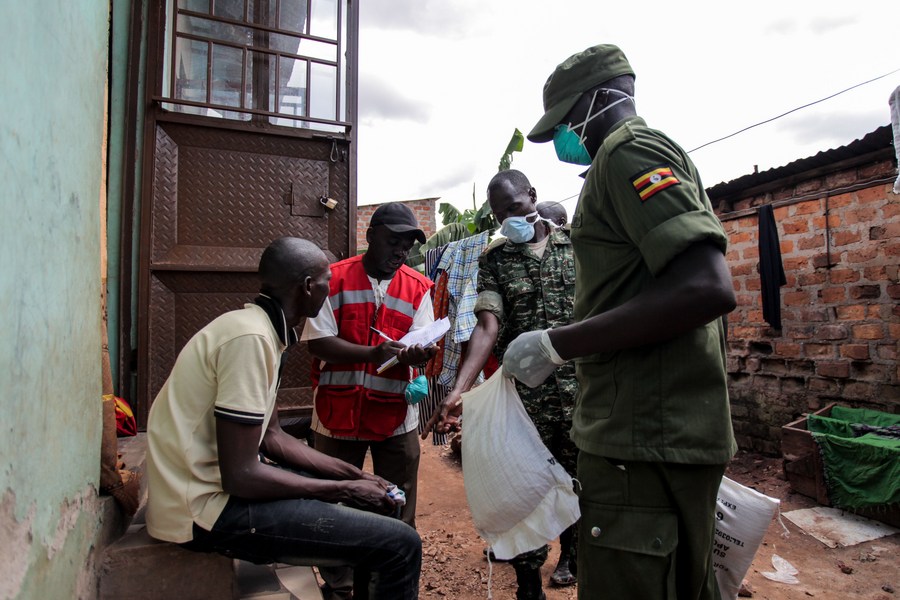
Uganda strives to balance food systems

As the world is set to commemorate World Food Day on Friday in the middle of the COVID-19 pandemic, Uganda says it is striving to balance the food systems that have been disrupted by the impacts of the COVID-19.
Vincent Ssempijja, minister of agriculture, told reporters here that although Uganda produces more than enough food to feed everyone, its food systems are out of balance.
Hunger, obesity, environmental degradation, loss of agro-biological diversity, food loss and waste, and a lack of security for food chain workers are only some of the issues that underline the imbalance.
“In Uganda, the challenge is that the population continues to grow at a rapid rate of 3.2 percent per annum; while agricultural productivity is at 2.9 percent per annum. As a country we have a food gap of 0.3 percent that must be addressed to match the population growth rate,” he said on Tuesday, ahead of the Friday commemorations that will be held under the theme, “grow a variety of food to nourish a growing population and sustain the planet, together.”
Ssempijja said the pandemic has shown that there is a need to reflect on the most basic needs.
“These uncertain times have made many of us rekindle our appreciation for a thing that some take for granted and many go without food. Food is the essence of life and the bedrock of our cultures and communities,” he said.
“Preserving access to safe and nutritious food is and will continue to be an essential part of the response to the COVID-19 pandemic, particularly for poor and vulnerable communities, who are hit hardest by the pandemic and resulting economic shocks,” he said.
The Food Security Status reports for Uganda for the period June 2020 to January 2021 noted that in July 2020, two in 10 households in urban areas did not have enough food to eat. Half of them resorted to poor diets or reduced number and size of meals; while six in 10 families sold their productive assets, such as land or livestock, and begged or turned to illegal activities to find food.
The reports reveal that a further 17 percent of Ugandans living in the capital Kampala are experiencing acute food insecurity.
“In a moment like this, it is more important than ever to recognize the need to support our food heroes — farmers and workers throughout the food system — who are making sure that food makes its way from farm to fork even amid disruptions as unprecedented as the current COVID-19 crisis,” Ssempijja said.
He said that as countries begin to develop and implement COVID-19 recovery plans, there is a need to adopt innovative solutions that can build back better and improve food systems, making them more resistant to shocks.
Ssempijja said the government has put in place enabling policies to address natural resource management issues, food security and improve the nutrition status in the country.
He said issues of promoting agro-processing, value chain development, and commercialization of the agricultural sector are being addressed. He said bio-fortification of crops to address nutrient (protein, iron, zinc, vitamin A) deficiencies is also being worked on.
Antonio Querido, Food and Agriculture Organization representative in Uganda, said this is an opportune time to work towards addressing the persistent inequalities and inefficiencies that plague food systems, economies, and social support structures.
Querido, who was speaking ahead of the World Food Day commemoration, said this would require innovative solutions, resilient and robust agri-food systems, global solidarity, and strong partnerships.
“We need smart and systemic action to get food to those who need it and improve it for those who have it,” he said.
While governments need to invest in social protection policies and programs that ensure safe conditions and decent incomes for smallholder farmers and food chain workers, the private sector can make a difference by sharing expertise and resources to help farmers, he said.






